
The charism of the MSP is to bring the riches of the Church to the poor.
We were born to increase the holiness of the Church by serving others. The book Imitation of Christ is our rule of spiritual life and every day it conforms us to Christ. Indeed, our condition as missionaries demands of us a deep spiritual life and, at the same time, to be “active contemplatives”, called to a radical commitment to the mission ad gentes through humble and silent evangelization.
We call ourselves Servants in direct reference to the Servant of Yahweh. The fundamentals of our life are: the Cross, silence, humility and, above all, obedience. Contemplating Christ, obedience to the Father, we want to be faithful to the Magisterium of the Church even in its smallest details.
We feel especially protected by the Virgin, Holy Mary Mother of the Poor, to whom every member profession a tender devotion.

The book Imitation of Christ molds our life
By making the Imitation of Christ is our rule of life, we conform ourselves to Christ
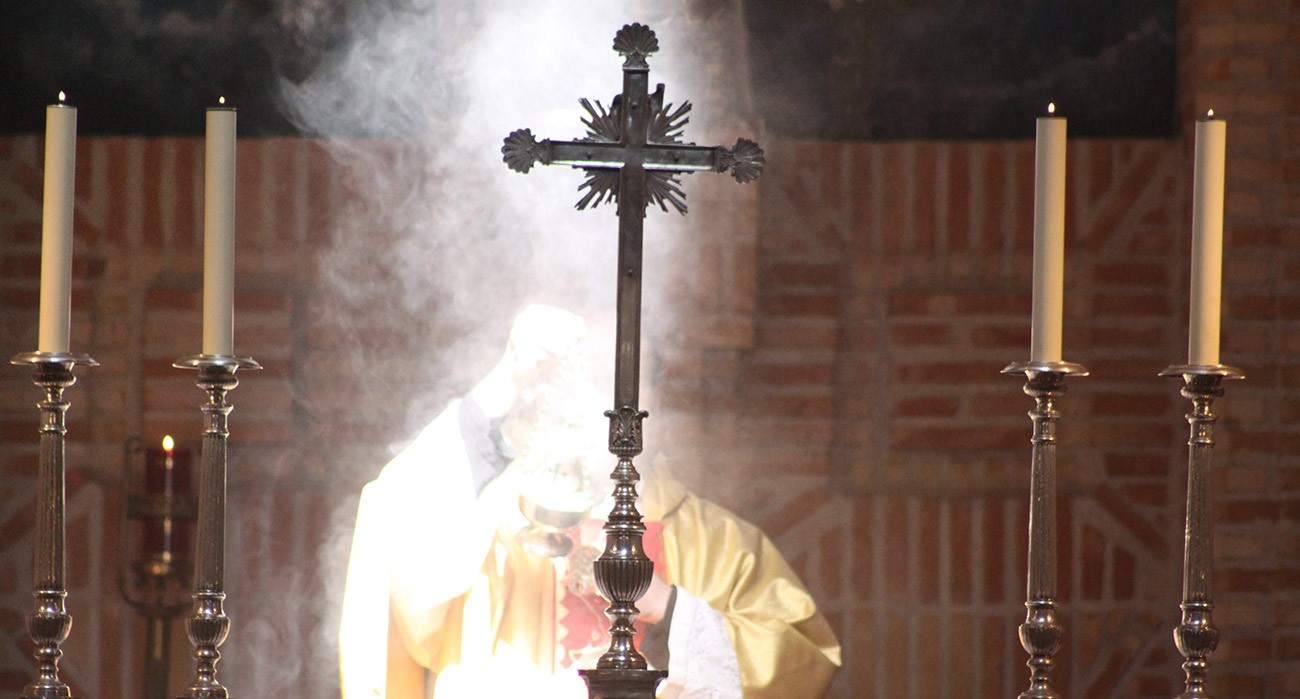
The Holy Spirit, the axis of our life
Every day we invoke the power of the Holy Spirit, true pillar of our missionary life, with the songs Veni Creator and the Veni Sancte Spiritus

Deep love for the Holy Eucharist
Every day in our houses we have one hour of Eucharistic Adoration desiring that He make us bread shared with the poor
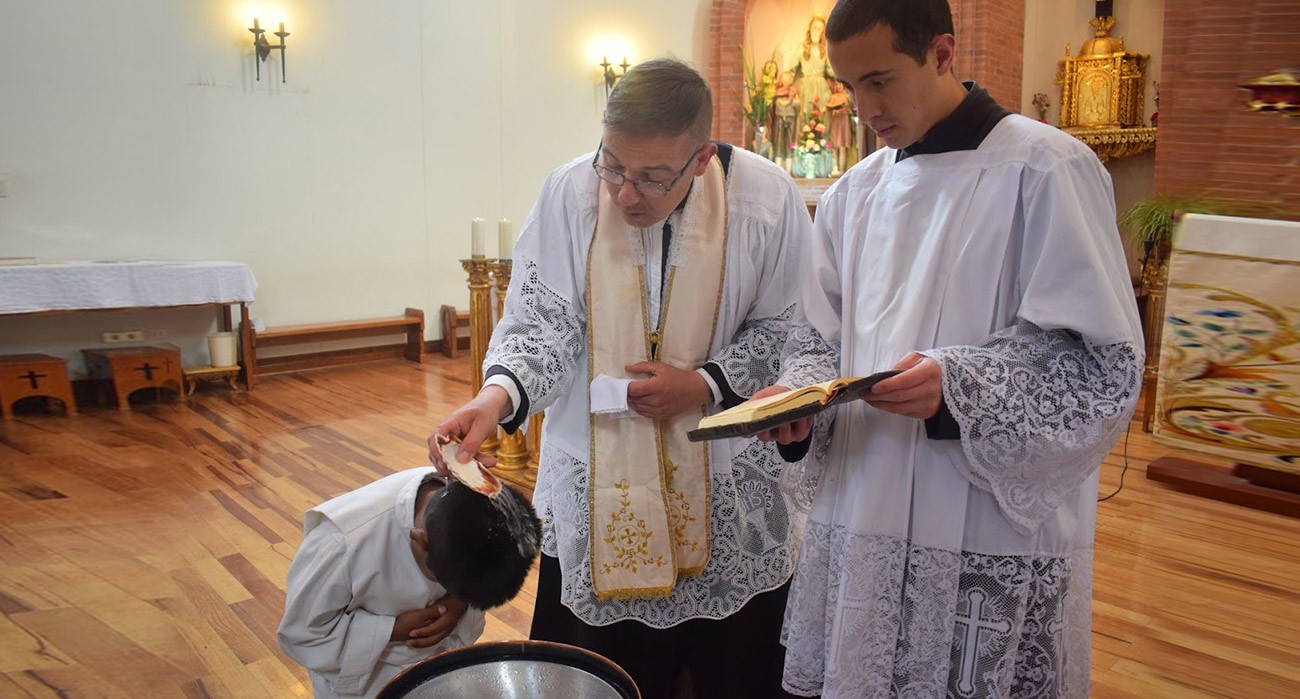
Loving the poor, as a Church
If we only give the poor material help, we make them even poorer, so we must give them all the riches of the Church
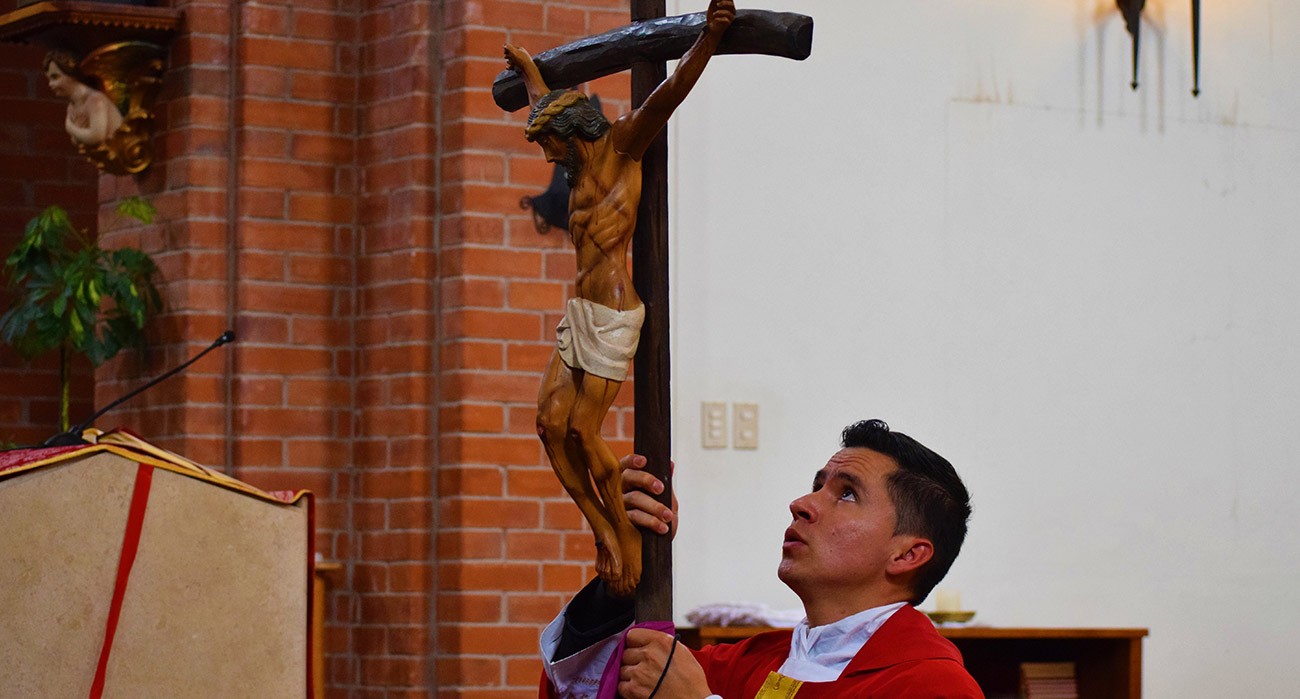
Firm purpose of continuous conversion
We are conscious of our littleness and weakness, so we practice continuous “Conversion of Life”

Seeking eternal salvation for the poor
“The Movement of the Missionary Servants of the Poor will expand and send down deep roots if it remains in God and seeks the eternal salvation of the poor.”
To be true brothers of the poor, said Pope Paul VI, missionaries must be true imitators of Jesus Christ. Hence Father Giovanni has made the book Imitation of Christ the rule of life for the MSP.
Our emblem: faithful expression of our charism
-
 The missionary washing feet
The missionary washing feet
It shows our willingness to give our own life to the service of the poor after the example of Jesus washing the feet of His disciples.
-
 The empty Cross
The empty Cross
Our commitment to continuing the mission of Christ is expressed by the empty Cross. We know that each one of the missionaries must take his place upon the Cross.
-
 Fire
Fire
Trust in the Holy Spirit is represented by the flames; also, the Eucharist meaning of our lives is shaped by the presence of this same fire.

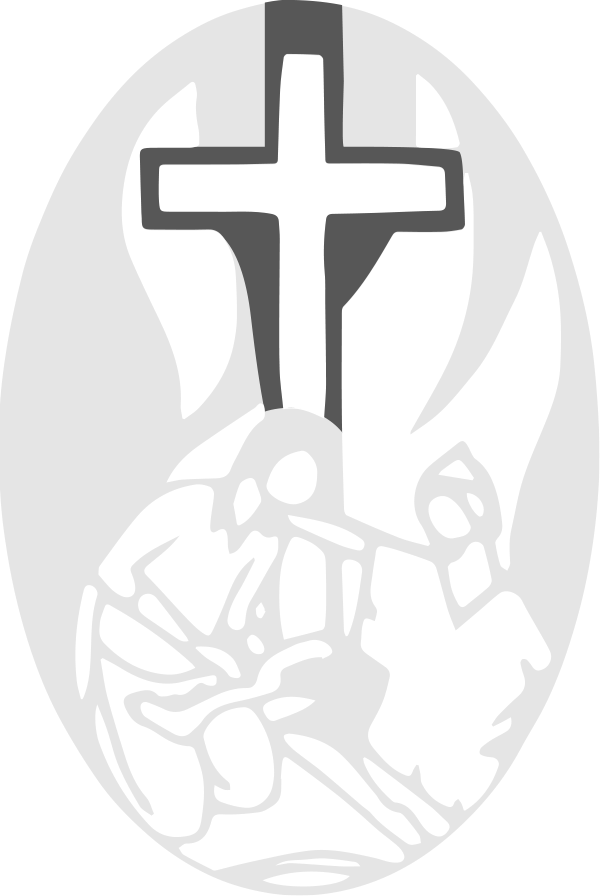
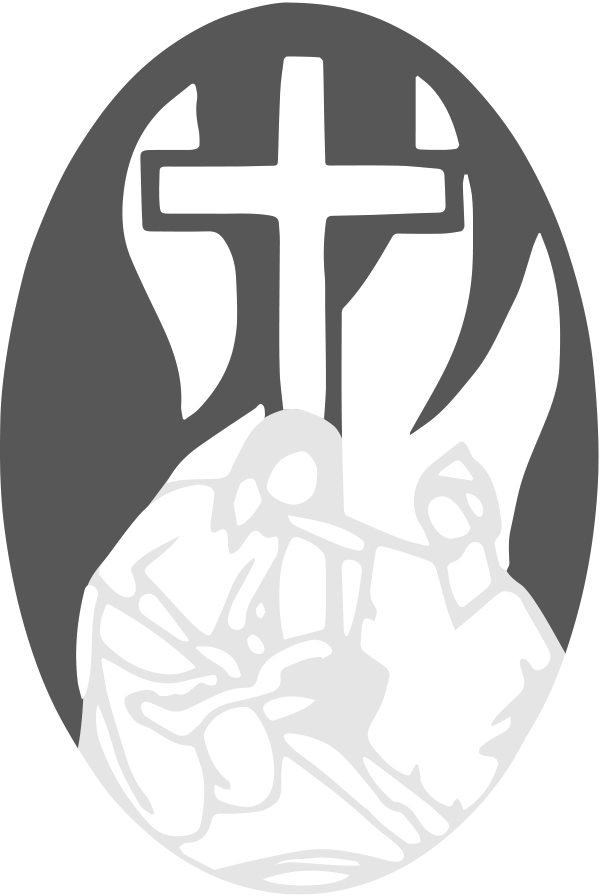

Deny yourself, take up your cross and follow me
